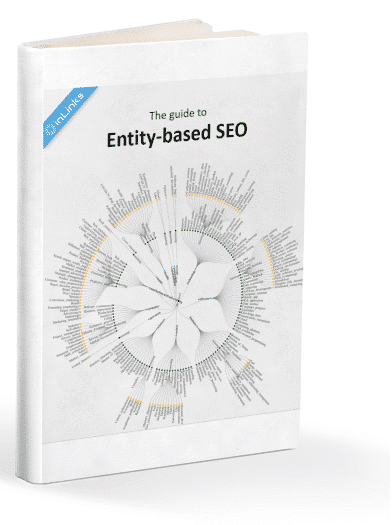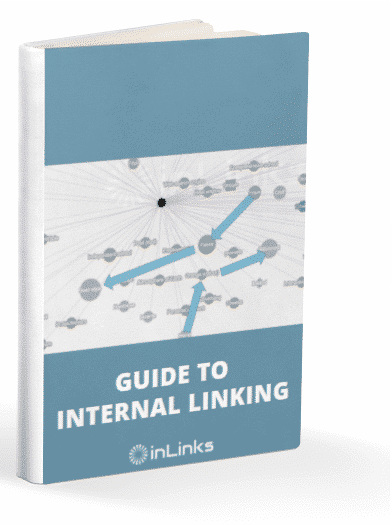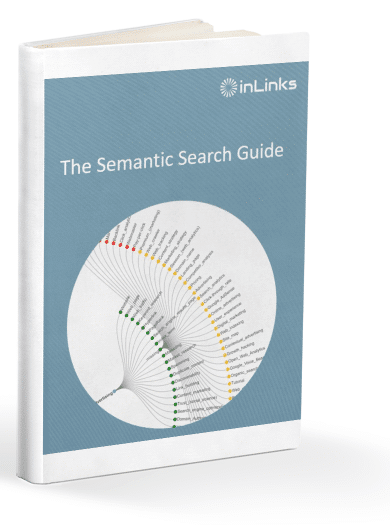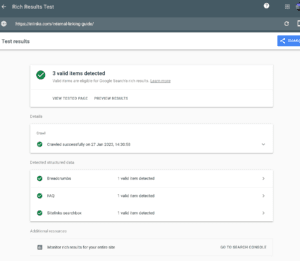The sameAs Schema Tag and how to use it
SEOs can use the sameAs schema markup to help a search engine understand what a page is about. You can do this by pointing out a page with similar subject matter that you are confident the search engine DOES understand.
The sameAs tag unambiguously indicates an item’s identity through connecting it to such sources as its corresponding Wikipedia pages, Wiki Entry, or official website. It essentially takes a ‘thing’ and gives it context by linking it to a trusted URL value formant. This then links the content to the information that exists on this authoritative page. In this way, we can create schema around a keyword and shift it into becoming an entity through pre-existing and authoritative data collections.
By defining your own entities in this way, search engines can see the underlying structured data when crawling your page and have a better-defined understanding of what these entities entail. Google is becoming increasingly human every day, and the SameAs schema tag is a perfect example of this.
Does the sameAs schema affect rankings?
The semantic markup of a website consists of adding structured data which enables a website to better describe its content. However, incorrectly implemented schema can result in a loss of rankings.
When done right, however, tagging your data with sameAs contributes to a variety of SEO fundamentals including rich snippets and local SEO panels. As Google knows what you are talking about, it feels much more confident in bringing you to the top of the ranking. It is not enough anymore to use keywords in isolation, and supplying the context in which your content exists is helpful in delivering a great user experience.
Providing Google with structured data – and checking it with the Google Structured Data Testing Tool – means search engines can access your content’s true meaning. Webmasters can communicate most effectively with search engines in this fashion to encourage visibility. Although I have not seen this confirmed by Googlers to directly affect a page ranking, schema markup using the sameAs tag has the potential to indirectly affect rankings, with increased visibility via rich snippets.
In May 2020, Inlinks carried out a controlled test in which many SEOs added the sameAs schema to their site and made little to no other changes to their Seo strategy. It was found that, over the course of a month, twice as many sites gained rankings than lost rankings. Although Google does not say for sure that sameAs schema has a direct change to the core algorithms, it is extremely helpful to tell explain what you’re talking about using authoritative URLs.
Is there an easy way to add the sameAs tag to my website?
Yes! When you inject the Inlinks JavaScript code onto your site, Inlinks automatically generates a schema markup for the topics you have targeted to your pillar pages. This is enabling ABOUT and MENTIONS schema which is aided by the sameAs tag. Not only this, but it also creates FAQ schema
Inlinks can do this so well as it has built its own knowledge graph, which connects a mass amount of ‘about’ entities through the sameAs tag.
Here is an example, I have highlighted the sameAs tag in red:
<script type="application/ld+json"> {
"@context": "https://schema.org",
"@type": "WebPage",
"@id": "https://dixonjones.com/seo/seo-traps-in-wordpress/#ContentSchema",
"headline": "SEO Traps & WordPress",
"url": "https://dixonjones.com/seo/seo-traps-in-wordpress/",
"about": [
{"@type": "Thing", "name": "Search_engine_optimization", "sameAs": "https://en.wikipedia.org/wiki/Search_engine_optimization"},
{"@type": "Thing", "name": "WordPress", "sameAs": "https://en.wikipedia.org/wiki/WordPress"},
{"@type": "Thing", "name": "trap", "sameAs": "https://en.wikipedia.org/wiki/Trapping"}
],
"mentions": [
{"@type": "Thing", "name": "Search Engine", "sameAs": "https://en.wikipedia.org/wiki/Search_engine"},
{"@type": "Thing", "name": "website", "sameAs": "https://en.wikipedia.org/wiki/Website"},
{"@type": "Thing", "name": "blog", "sameAs": "https://en.wikipedia.org/wiki/Blog"},
{"@type": "Thing", "name": "Digital Marketing", "sameAs": "https://en.wikipedia.org/wiki/Digital_marketing"},
{"@type": "Organization", "name": "Google", "sameAs": "https://en.wikipedia.org/wiki/Google"},
{"@type": "Thing", "name": "print", "sameAs": "https://en.wikipedia.org/wiki/Publishing"},
{"@type": "Thing", "name": "Marketing", "sameAs": "https://en.wikipedia.org/wiki/Marketing"}
]
} </script>Inlinks has generated its schema markup to include a primary and a secondary about data. This spells out the relevant topics on this page. When injected onto your page this JavaScript uses its own knowledge graph to create these associations all within 4-5 clicks.
Try inlinks for FREE to see how it can help improve your schema markup strategy.




Thanks for explaining! Is there any way to use multiple values for SameAs?
Yes, it is possible. See the below code
“sameAs”: [“https://en.wikipedia.org/wiki/Search_engine”, “https://en.wikipedia.org/wiki/Digital_marketing”,”https://en.wikipedia.org/wiki/Publishing”],
Hello.
I’ve runned your structured data via the rich test result tool provided by google, and it’s detecting syntax errors.
This is not a valid schema.
Hi Gio,

A quick check on one on our pages is fine in the Rich Test Result Tool:
However (and this is important to note), About ad Mentions schema do not create Rich Snippets. The only reicj snippets we affect is with our Q&A Schema. About and Mentions Schema helps search engfines understand the underlying concepts on the page, not to display them in a modified Rich Snippet format. So that tool does not test for About and Mentions schema.
Hi there, I had the same problem as Gio. It also shows an error in the schema.org validator.
Can I ask why you checked it on the rich results tool if “about” and “mentions” schema don’t create rich snippets? I’m just wondering if it’s okay to leave the syntax error as is or if it will create a problem in the crawl.
Thanks for the informative article!
OK. There was a comma missing in the example!!!! It works in Schema.org now. Apologies.
ah great! Nice one, it works. Thanks!!
Hi there,
Just a small doubt I am trying to generate schema markup for service page which offers hydro jetting services so in the about I am only adding the main entities like water jetting etc,, but in the mentions I have included all the related entities like drain cleaning, plumber, etc, which I have pulled from Wikipedia will this considered as black hat seo ?
I try and use this schema to DISAMBIGUATE, not to try and “catch all”. By adding things that are not specifically relevent to the content you MIGHT get a few more visitirs in teh short term, but your overall comversaions and engagement with the content will crash like a stone, so no black hat required to crash your rankings, just math.
I have a client that has an ecommerce shop for renting tools. Unfortunately the platform for his shop is very limited in regards to blogging and content creation. So we built a second website for content creation for our SEO strategy. Can I use the Same As Markup to tell Google the two websites are related? Or would that end up hurting SEO performance? Currently the websites are performing “ok” in the SERPs.
Yes, you CAN, but you may need several more signals before Google believes what you say. To be honest, if the second site is at (say) blog.theirsite.com and is linked to from the main site, and the link is reciprocated on the blog, then the relationship should be clear. The issue with your strategy is that it will only work for the brand itself, really, and only then if you make sure the home page has good metedata itself. It will not work well for you saying that the authority for (say) “JackHammer” is the brand. “Jack hammer” is defined in Wikipedia… if you try to be the “entity” for anything other than yourself, you are destined for confusion. You cabn set a page as being the “About” jack hammers, but the sameAs should refer to an authoritative definition of Jack Hammers… not to your checkout page.
Using the Schema.org “sameAs” markup tag in SEO can be beneficial for establishing strong online identity and improving search engine understanding of your entity’s connections. It helps link your website with other authoritative sources, potentially enhancing your website’s credibility and visibility in search results. However, it’s important to use “sameAs” accurately and avoid overloading it with irrelevant links.
100% agree. While having all these schema’s are good, messing it up is worse, sometimes you are better of letting search engine fetch automatically than doing something you are not comfortable with.
Such a great post. Thanks for share it
Leave a Reply
Want to join the discussion?Feel free to contribute!